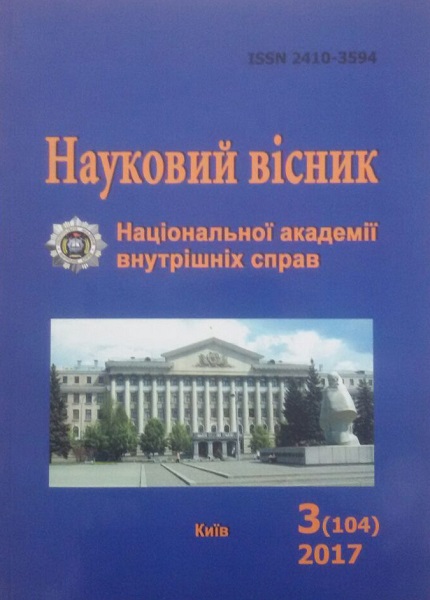Unification of Standards Law Enforcement: Issues of Theory and Practice
Abstract
Feature of the modern State of development of the system of law
enforcement in Europe is strengthening interagency cooperation, lawenforcement
and judicial bodies of countries of the EU, the creation of
special supranational structures, which also play an important role in the
fight against crime, along with national law enforcement authorities.
It’s about supranational bodies also provide law enforcement
activities, namely: the European police (designated authorities)
Directorate General of Internal Affairs; Eurojust; The European Office
of fraud; the European information network in the field of Justice,
etc., and is the main law enforcement agencies of the EU, created
with the aim of promoting cooperation between the Member States in
the fight against transnational organized crime.
The article analyzes the theoretical and practical aspects related to
the unification of standards enforcement. Considered in this context, the
activities of a number of supranational institutions, responsible for the
development and implementation of international standards in the field
of law enforcement attention. given, in particular, Europol and Eurojust,
the General Directorate of Internal Affairs, etc.
Standards enforcement due to the influence of integration
processes, joint supranational policy in the sphere of Internal Affairs
and the protection of human rights. Believe that they can be defined
as the totality of reforming rules and principles that have been
developed and adopted by the Member States of the EU, specifically
authorized by the institutions of the EU, with the aim of unifying
principles of law enforcement, the forms and methods of work law
enforcement officials a generally recognized democratic values, to
strengthen national and European law, the protection of the rights
and freedoms of human and citizen.
Without a doubt, in the sphere of law enforcement partners
reach a unified position, the implementation of a common policy
requires considerable effort. This once again indicates the aspects
and social importance of the problem, more complicated complex of
problems, the need for continuous improvement and development of
the mechanism of realization of law enforcement.
Downloads
Abstract views: 153 PDF Downloads: 84
- Authors reserve the right to authorship of their own work and transfer to the magazine the right of the first publication of this work under the terms of the Creative Commons Attribution License, which allows other persons to freely distribute published work with mandatory reference to authors of the original work and the first publication of an article in this magazine.
- Authors have the right to enter into separate additional agreements on non-exclusive dissemination of the work in the form in which it was published in the journal (for example, to post an article in the institution's repository or to publish as part of a monograph), provided that the link to the first publication of the work in this journal is maintained.
- The journal's policy allows and encourages the posting of articles by authors on the Internet (for example, in electronic storehouses of institutions or on personal websites), both before the submission of this manuscript to the editorial office and during its editorial processing, as this contributes to the creation of a productive scientific discussion and positively affects the efficiency and dynamics of citing the published work.




